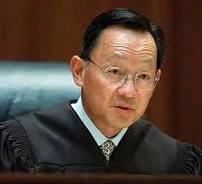
California Age Discrimination
California Supreme Court Rejects "Stray Remarks" Doctrine
 On August 5, 2010, Justice Ming Chin, writing for a unanimous California Supreme Court delivered an interesting decision in an age discrimination case brought by engineer Brian Reid against Google. The decision discussed, among other things, the "stray remarks doctrine" which is a common law federal court doctrine that statements made by non-decisionmakers or those outside of the decisionmaking process are deemed "stray" and cannot prove discrimination and therefore are also irrelevant and insufficient for the purpose of avoiding summary judgment.
On August 5, 2010, Justice Ming Chin, writing for a unanimous California Supreme Court delivered an interesting decision in an age discrimination case brought by engineer Brian Reid against Google. The decision discussed, among other things, the "stray remarks doctrine" which is a common law federal court doctrine that statements made by non-decisionmakers or those outside of the decisionmaking process are deemed "stray" and cannot prove discrimination and therefore are also irrelevant and insufficient for the purpose of avoiding summary judgment.
Reid alleged in his complaint that Google executive Urs Holzle, then Vice-President of Engineering, noted that Reid was "slow," "fuzzy, " "sluggish," "lethargic," did not "display a sense of urgency," and "lack[ed] energy" and his ideas were "obsolete" and "too old to matter." Wayne Rosing, Google's then Vice-President of Engineering, said to Reid at or around the time of his termination that he was not a "cultural fit" and coworkers referred to Reid as an "old man" and "old fuddy-duddy" and one coworker joked that his office placard should be an "LP" instead of a "CD." Google argued that these comments were irrelevant because they were made by non-decisionmakers and were unrelated to the decision to fire Reid.
The "stray remarks" doctrine first appeared in Justice O'Connor's concurring opinion in Price Waterhouse v. Hopkins, 490 U.S. 228, 276 (1989). Justice O'Connor noted that "statements by nondecisionmakers, or statements by decisionmakers unrelated to the decisional process itself" do not constitute direct evidence of the decisionmakers' negative reliance on an illegitimate criterion in reaching their decision. She noted that stray remarks standing alone do not suffice to shift the burden of persuasion to the employer. Since the development of this doctrine, federal circuit courts deem irrelevant any remarks made by non-decisionmaking coworkers or supervisors outside of the decisionmaking process and such stray remarks are insufficient to withstand summary judgment.
 Until Reid v. Google, California Appellate Courts had discussed the doctrine in some cases, but had not ruled conclusively on whether California would adopt the federal "stray remarks" doctrine. The California Supreme Court held that the stray remarks doctrine was not good for California because it would result in a court's exclusion of evidence even if that evidence was relevant. The Court especially did not like the result of applying the stray remarks doctrine strictly, which requires the court to assess the remarks in isolation simply because they are made by non-decisionmakers or made by decisionmakers uninvolved in the the termination process.
Until Reid v. Google, California Appellate Courts had discussed the doctrine in some cases, but had not ruled conclusively on whether California would adopt the federal "stray remarks" doctrine. The California Supreme Court held that the stray remarks doctrine was not good for California because it would result in a court's exclusion of evidence even if that evidence was relevant. The Court especially did not like the result of applying the stray remarks doctrine strictly, which requires the court to assess the remarks in isolation simply because they are made by non-decisionmakers or made by decisionmakers uninvolved in the the termination process.
Justice Ming Chin, writing for the unanimous Court also noted that strict application of the stray remarks doctrine is contrary to California Civil Procedure rules which require the court to consider at summary judgment "all of the evidence set forth... and all inferences reasonably deducible from the evidence." Justice Chin also drew attention to the federal circuits' problems with the stray remarks doctrine because there is no precise definition of who is a decisionmaker and what constitutes remarks made outside of the "decisional" process and that this has resulted in a conflict between federal circuits over what constitutes a stray remark.
Reid's Age Discrimination Case May Proceed Against Google
The Court's decision allows Reid to pursue his case against Google in the California Superior Court and it will be interesting to see if Google settles the case, and if not, how a jury will perceive Reid's treatment by Google executives. There has been a significant rise in age discrimination claims in the federal and state courts over the past five years and recent federal decisions have made it much more difficult for plaintiffs to prevail in age discrimination cases in the federal courts.
Read the California Supreme Court's decision in Reid v. Google here.
- Log in to post comments
visit us at:
San José, CA 95008
Santa Cruz, CA 95060
The Olender Pro Bono Project
We represent some clients who have compelling cases and little money at no charge. Sean received the Benito Juarez human rights award in 2008 and the ALRP Volunteer Award in 2012 for taking more than 10 pro bono cases in 12 months. We need volunteers. E-mail Debbie to volunteer.
Change Your Address at DHS!
If you are not a US citizen, you must change your address with DHS within 10 days of moving or face deportation. Click Here.






































